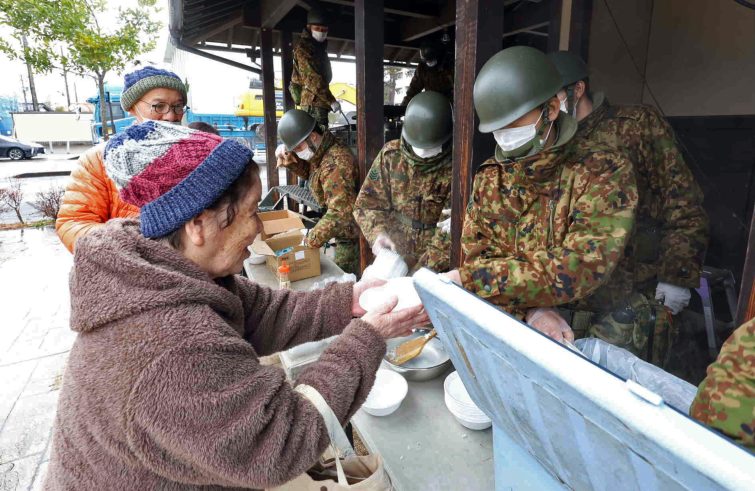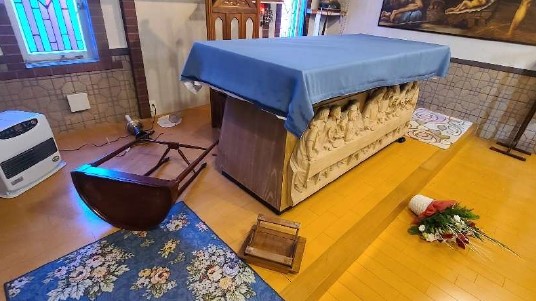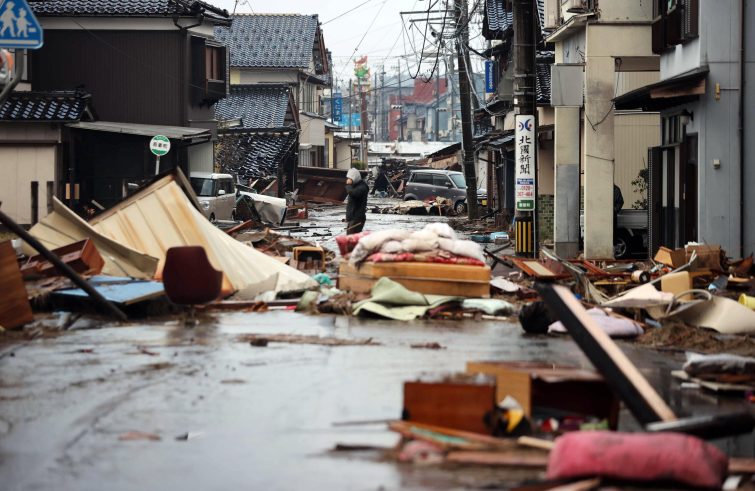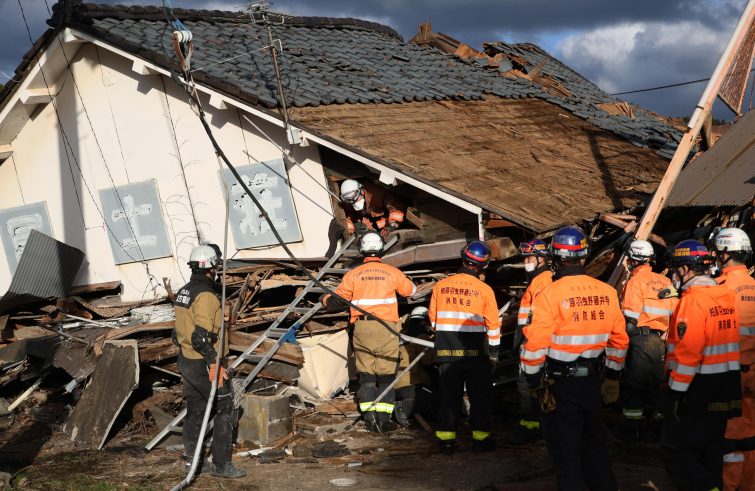
(Tokyo) While the earthquake emergency is no longer news overseas, in Japan the media continues to provide up-to-date coverage of the situation in the areas hit by the earthquake of 1 January, which measured a magnitude of 7.6 with its epicentre on the Noto peninsula. The earthquake swarm caused more than 1,200 aftershocks last week, bringing the death toll to 168 on the evening of 8 January, with a total of 323 people reported missing by the end of the day. More than 28,000 people are sheltering across 390 evacuation centres in Ishikawa Prefecture, with some 20,000 families reportedly without electricity and 59,000 without drinking water.
Water shortages are affecting sanitation, creating a health emergency, especially in shelters for displaced people, with an increase in cases of influenza and coronavirus, made worse by below-zero temperatures, raising the risk of an epidemic. Authorities have also warned of further collapse of quake-damaged buildings and homes due to heavy snowfall in the earthquake-affected areas.
Roads damaged by the earthquake, snow and ice pose a major challenge to firefighters, police and rescue teams as they try to reach isolated areas with basic supplies and, most importantly, to save the lives of those still trapped under the rubble, even though the chances of survival appear very slim more than 72 hours later.
Nevertheless, as is often the case in these situations of total darkness, the beacon of solidarity and altruism is shining brightly even among the surviving inhabitants, as reported by some news outlets. “This is all I can do,” said a man who got out of his car and handed two precious bottles of water to an employee of a nursing home. Despite the fact that his home had been destroyed, he was standing by the side of the road in Wajima with a handwritten appeal for help for the facility’s earthquake survivors.
- (Foto ANSA/SIR)
- (Foto ANSA/SIR)
“I want to help customers in any way I can,” a supermarket manager, who put most of the items on sale at 100 yen, or €0.63, told reporters, adding that “profit can wait.”
Ishikawa Prefecture, the one most affected by the earthquake, together with the other four prefectures of Aichi, Gifu, Fukui and Toyama, is part of the Diocese of Nagoya, which covers an area of 28,419 km² with a population of about 12,454,582 inhabitants, of whom 17,645 are Catholics, according to the official website of the Japanese Bishops’ Conference. The bishop, Msgr. Goro Matsuura, published a report on 4 January on the diocesan website concerning the extent of the damage in the three prefectures of Ishikawa, Toyama and Fukui. In particular, the parishes of Wajima and Nanao in Ishikawa Prefecture were severely damaged, having suffered collapsed external walls, ceilings and apse. Minor damage was

reported in other parishes in the area. Father Yoshihiro Kataoka, parish priest of the Ishikawa district, was unable to reach the parish of Wajima due to poor road conditions, but was able to gather information through messages and photos from the principal of the nursery school, who was also a victim of the collapse of her home, along with two other Filipino parishioners. On 3 January, representatives from the Diocese of Nagoya, the Emergency Response Support Team (ERST), the Central Catholic Council and Caritas Japan held an online meeting to monitor the situation and discuss future steps. The diocese has launched a fundraising campaign to help the families of the victims and survivors, and to begin initial reconstruction work.
“We are very grateful for the expressions of support and the outpouring of prayers that we have already received. Our prayers are for the repose of the soul of the deceased, for the speedy recovery of those who are still unaccounted for, and for all those who have been evacuated in the wake of this terrible tragedy,” said Monsignor Matsuura.













